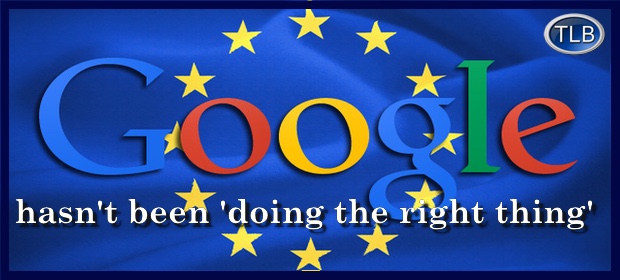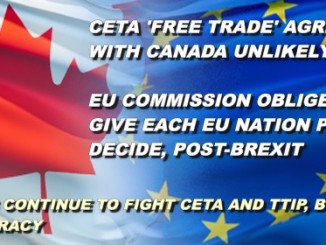
EU May Fine Google $9 Billion for Manipulating Searches
C. MITCHELL SHAW
The European Commission is preparing to punish Google by hitting the world’s biggest search engine with a huge fine for manipulating search results to steer customers to Google shopping services, according to a recent report.
As the largest and most popular search engine in the United States and Europe, Google is synonymous with search. In fact, the phrase “Google it” simply means to search the Internet for something. People assume that when they search for a particular topic, the returns they see are the most relevant or most popular sites related to that search. While that may be true for many search engines and may often even be true for Google, it is not true for Google when one uses the popular search engine to search for information on a variety of topics related to products and services.
In those cases, the person performing the Internet search may instead see Google’s own products and services prioritized above more relevant returns. By skewing search results to favor products and services offered by Google or Google partners, Google undermines the widely understood purpose of its search engine. By pushing returns from competitors further down the page or onto second and third pages — where practically no one ever looks — Google may be “harming both rivals and consumers,” according to a report by the Independent.
The Independent reported Friday that two people familiar with the matter said that EU antitrust regulators have been investigating Google for seven years and have decided that the Internet titan is guilty of violating antitrust laws. This is not Google’s first time running this course, either. In 2013, the U.S. Federal Trade Commission (FTC) settled a similar case against Google by ordering the company to cease its practice of “scraping” data — including reviews — from competitors’ websites to promote its own products and services.
But it appears that the FTC order did not have the desired effect. This time around, that may change: EU regulators plan to bring the full weight of EU antitrust law to bear in the case. Fines for antitrust practices in the EU can reach as high as 10 percent of a company’s global turnover. In Google’s case — as the world’s most valuable listed company as of 2016 — that could mean a fine of $9 billion.
 While the case — which has been going on for years — does not catch Google by surprise, the fine would certainly get the company’s attention. The company has tried three times to settle the case to avoid being found guilty of wrongdoing and fined. The European Competition Commission — under both Commissioner Joaquin Almunia (pictured) and his successor, Margrethe Vestager, has refused to settle. Google — it appears — will have to face the music.
While the case — which has been going on for years — does not catch Google by surprise, the fine would certainly get the company’s attention. The company has tried three times to settle the case to avoid being found guilty of wrongdoing and fined. The European Competition Commission — under both Commissioner Joaquin Almunia (pictured) and his successor, Margrethe Vestager, has refused to settle. Google — it appears — will have to face the music.
The final determination on the case — including whatever fine the commission will levy — is expected by August, according to sources cited by the Independent.
Google has a spotty reputation for living up to the company motto. “Don’t be evil” was Google’s motto from 2000 to 2015. When the company restructured under the Alphabet umbrella (of which Google is now a division), it quietly changed that motto to the more positive “Do the right thing.” It appears the change was a matter of semantics, since the Internet search giant has continued to follow a pattern of breaking promises and laws in its race for digital dominance.
As The New American has reported previously, in December 2015, it was revealed that — in spite of promises not to do so — Google was using the popular (and free) Google Apps for Education (GAFE) suite of educational tools installed on school Chromebooks to harvest the data of minor students. And during in June 2016, the company was found to be manipulating search results to favor Hillary Clinton in the race for the White House.
Given the lack of trustworthiness Google demonstrates as a matter of course, many users have chosen to use other, more reliable — and privacy friendly — search engines, such as DuckDuckGo and StartPage. Searches from those — and similar — search engines return the most relevant or popular results with the added benefit of the searches — and users — not being tracked and data-mined.
************
ER recommends other articles by The New American




